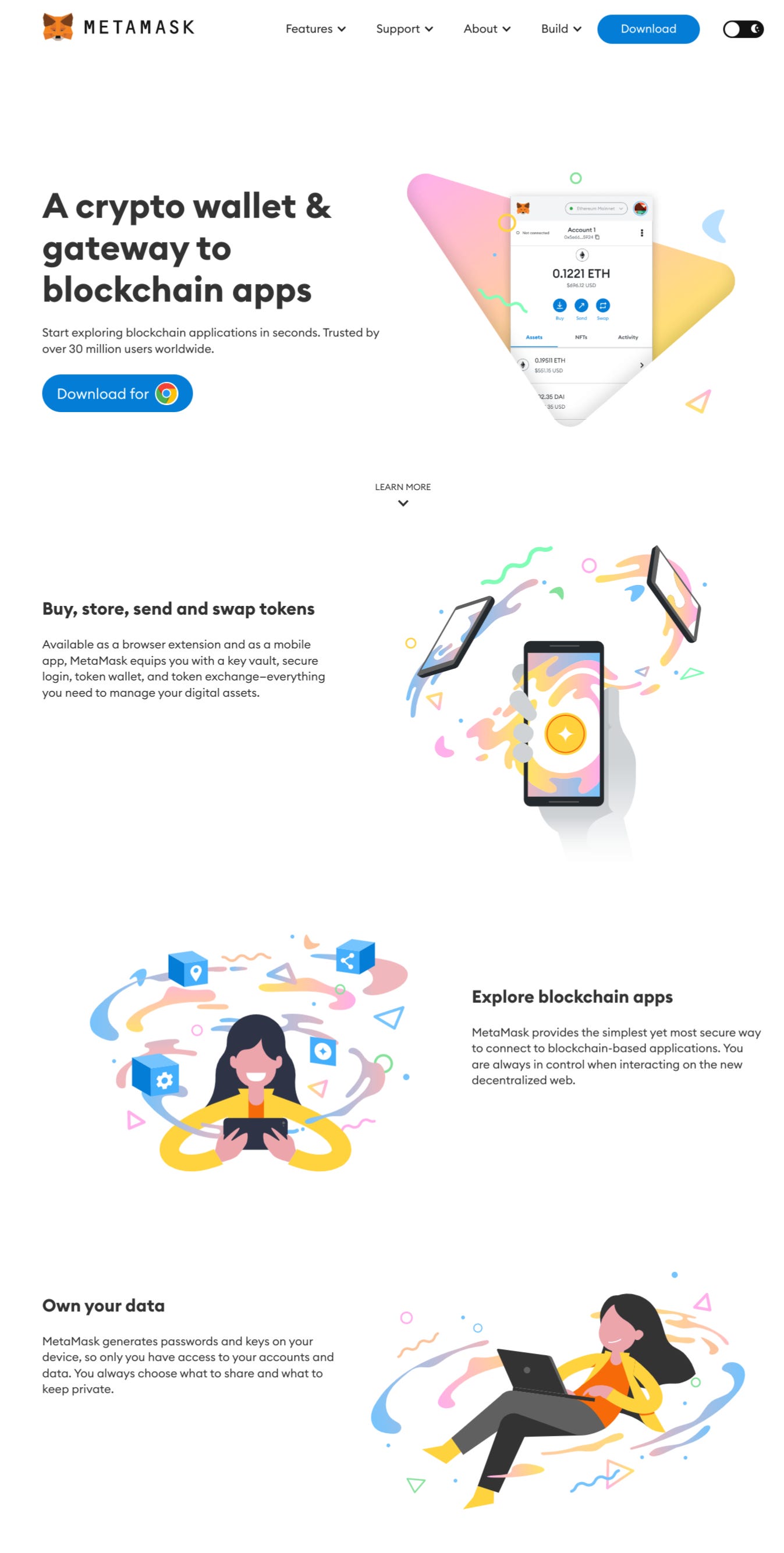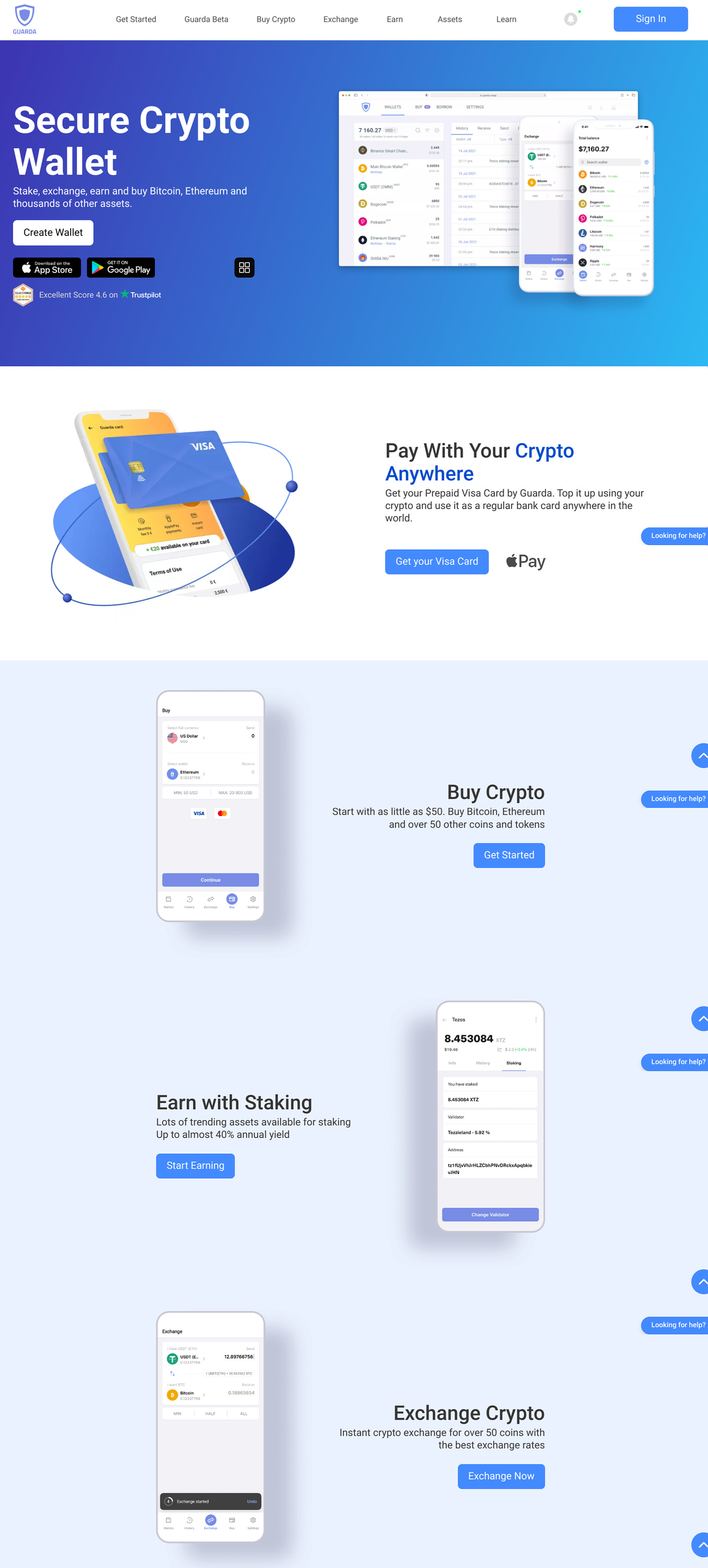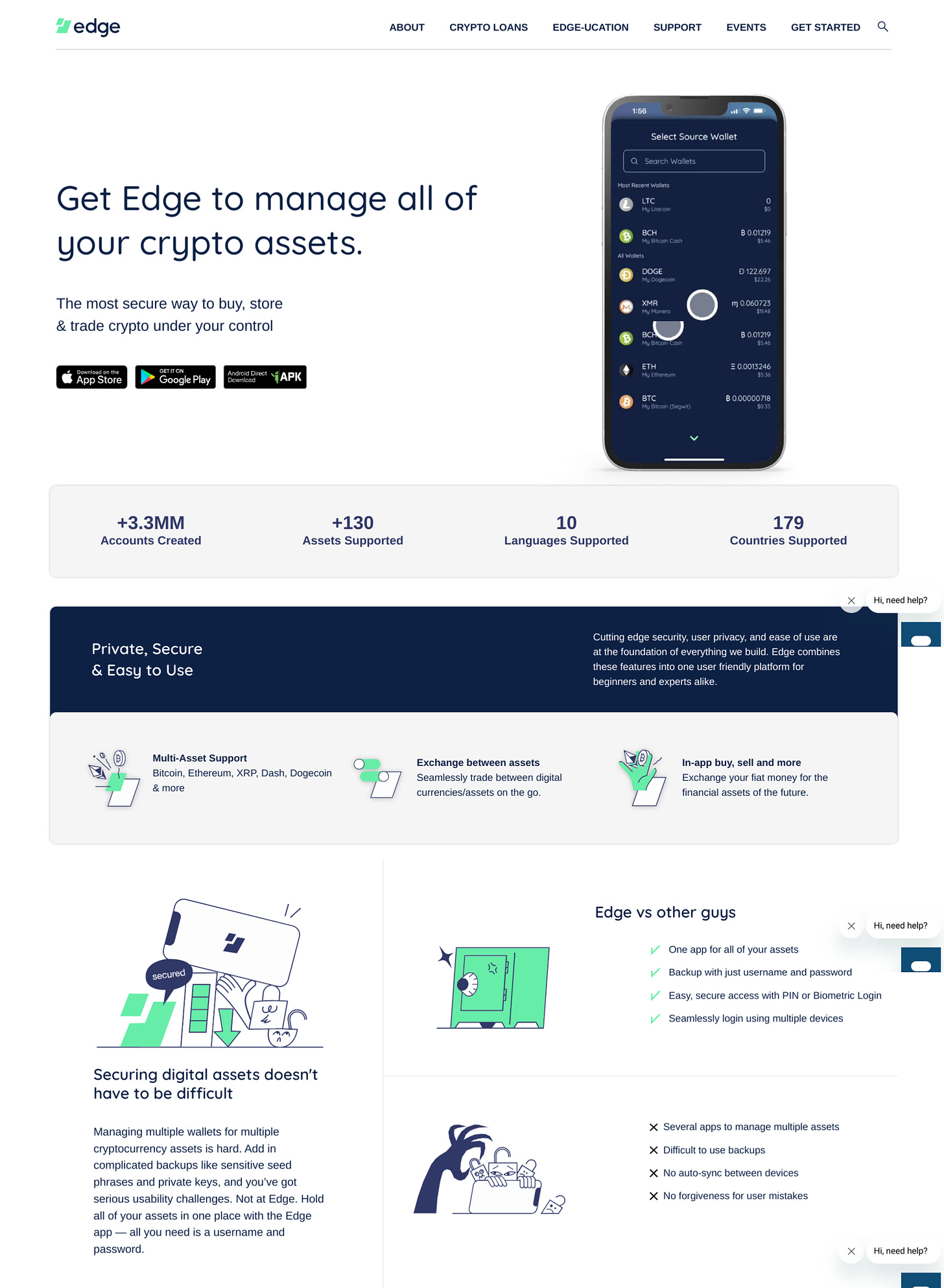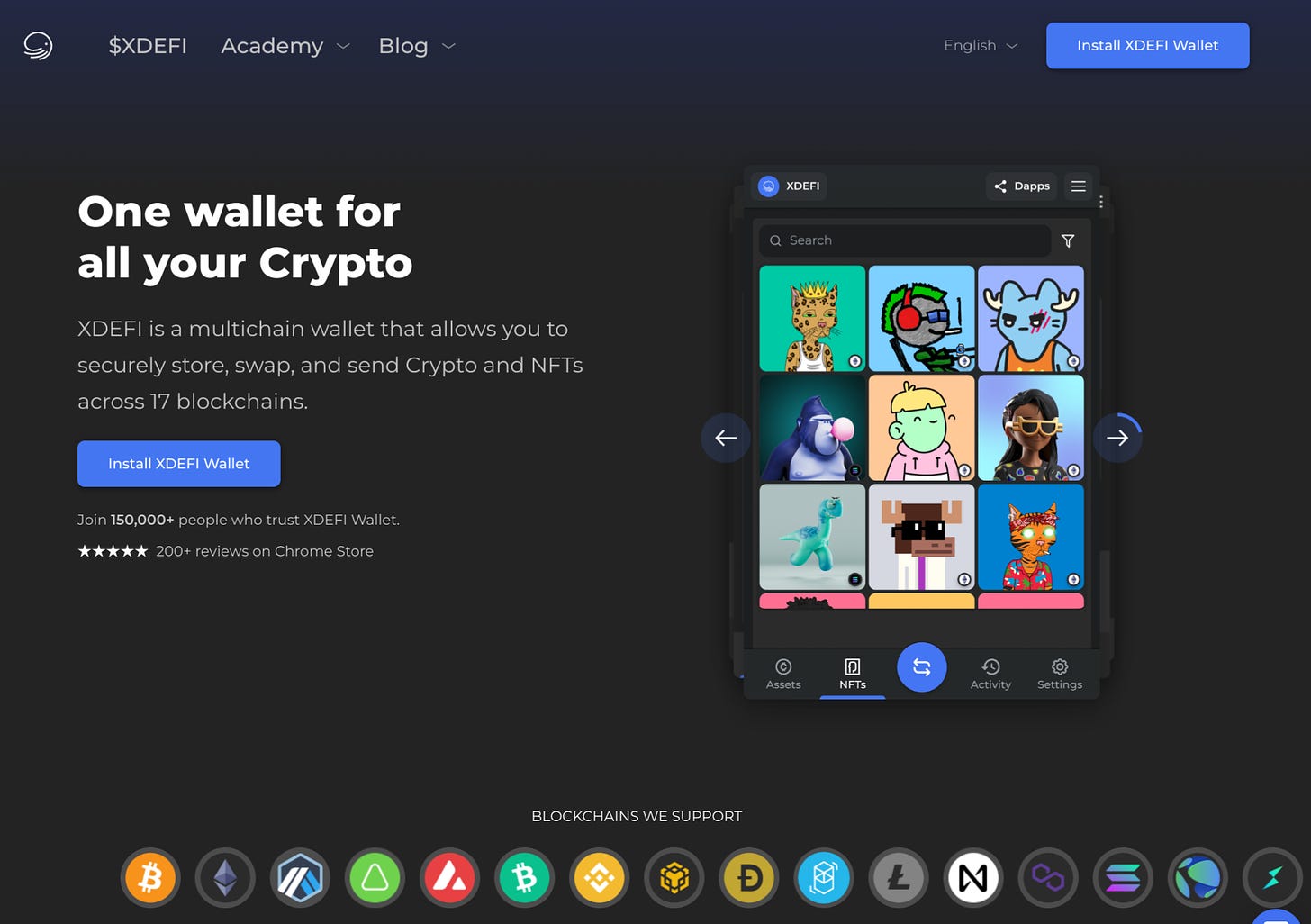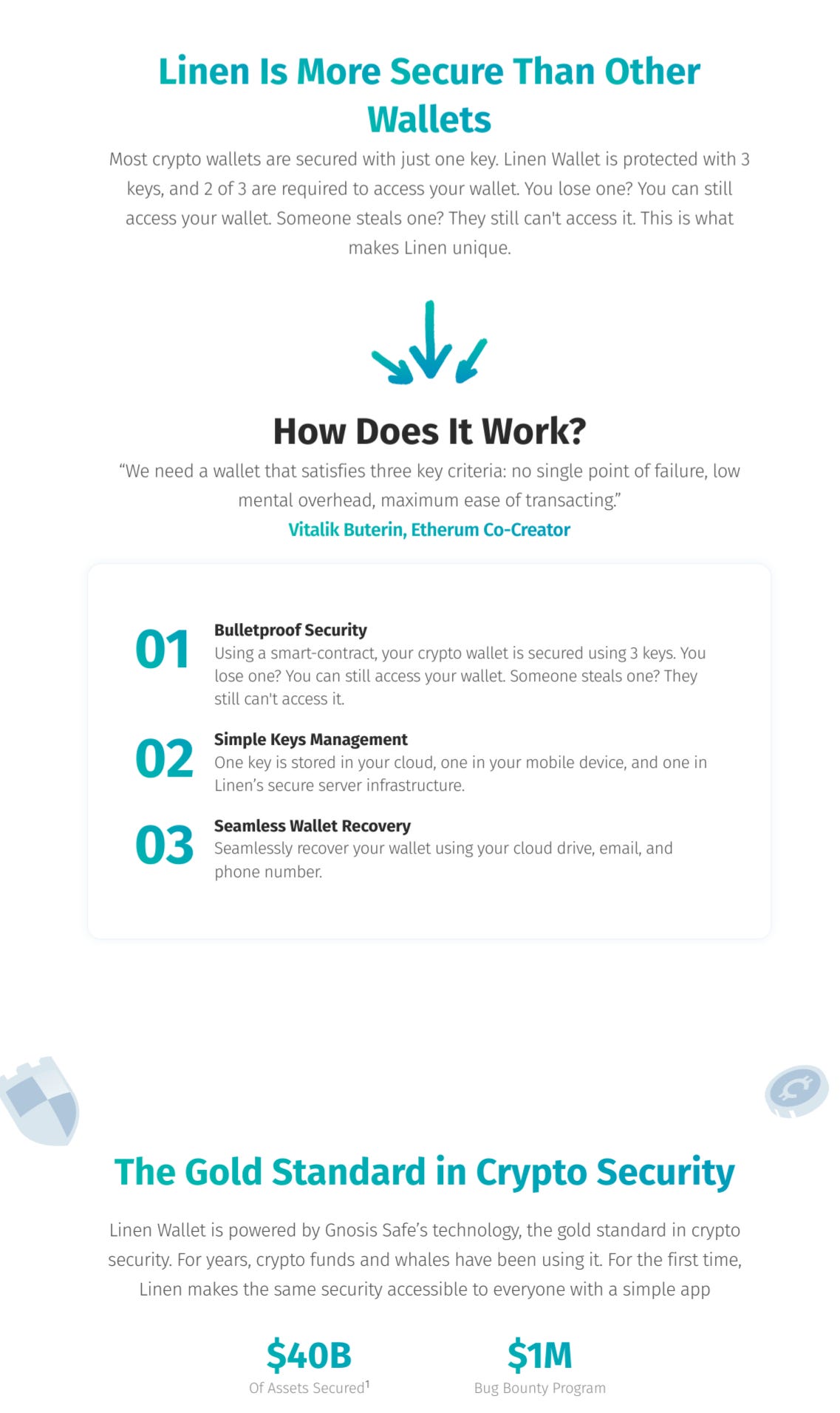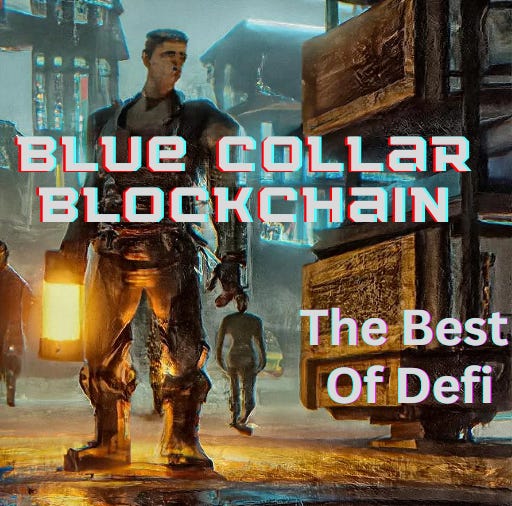Six Crypto Wallets To Kick-Start Your Self-Custody
Free, Full of Features, User Friendly Mobile and Web Apps
Why You Need A Crypto Wallet
You can store and transact digital assets while maintaining custody and control. This is what smart contracts offer, they are the code that is the third party.
Your deposits to your wallet interact with blockchain networks through smart contracts. Third parties create the dapps that run these smart contracts, but they don't have the ability to dip their hands in your cookie jar.
Examples of Problematic Third Party Custody
FTX - The founder and CEO used customer deposits as his personal piggy bank.
FTX was a FRAUD problem that SMART CONTRACTS and SELF-CUSTODY would have prevented. If this is news to you, take it seriously. If you’re saying “of course” then go tell your non-crypto friends.
Robinhood - You may be trading crypto, but Robinhood holds it for you.
Coinbase - Their policy openly states that customer deposits are fair game in a bankruptcy situation.
Banks - Read up on the limits you have when withdrawing money from your bank. I bet it’s $10,000 or less without prior explanation, approval, and waiting periods.
Web and Mobile Wallets Are Free And Easy To Use
MetaMask
TrustWallet
Guarda
BitPay
Edge
XDeFi Wallet
Linen Wallet
Definitions
Public Key
Effectively a wallet’s public address, like a bank account number.
Private Key
Effectively a wallet’s pin code, needed to sign transactions and receive communications sent to the corresponding public key. Public and private keys look like similar numeric sequences but serve distinct purposes.
Seedphrase
A 12 - 36 word password for crypto wallets. Never share your seedphrase!
“Not your keys, not your crypto”
Referring to users’ private keys, if a wallet’s keys are not user owned then the wallet’s funds and activities are not completely user controlled.
Hardware Wallet
A physical device for storing crypto user’s private keys in offline, cold storage.

Thank you for reading!
Disclaimer: Opinions here are my own. None of this is financial or investment advice. You should always do your own research, form your own opinions and make your own decisions.



